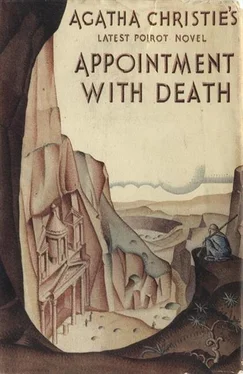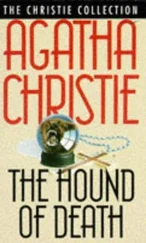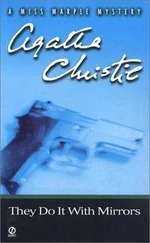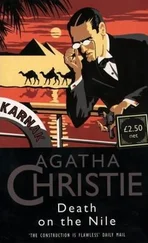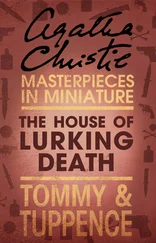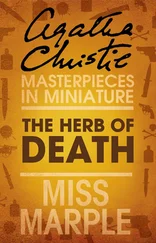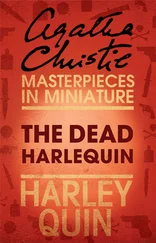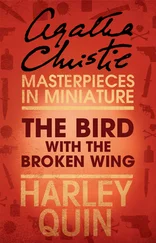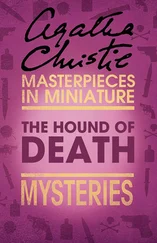Agatha Christie - Appointment with Death
Здесь есть возможность читать онлайн «Agatha Christie - Appointment with Death» весь текст электронной книги совершенно бесплатно (целиком полную версию без сокращений). В некоторых случаях можно слушать аудио, скачать через торрент в формате fb2 и присутствует краткое содержание. Год выпуска: 2007, ISBN: 2007, Издательство: Black Dog & Leventhal Publishers, Жанр: Классический детектив, на английском языке. Описание произведения, (предисловие) а так же отзывы посетителей доступны на портале библиотеки ЛибКат.
- Название:Appointment with Death
- Автор:
- Издательство:Black Dog & Leventhal Publishers
- Жанр:
- Год:2007
- ISBN:ISBN-10: 1579126928
- Рейтинг книги:4 / 5. Голосов: 1
-
Избранное:Добавить в избранное
- Отзывы:
-
Ваша оценка:
- 80
- 1
- 2
- 3
- 4
- 5
Appointment with Death: краткое содержание, описание и аннотация
Предлагаем к чтению аннотацию, описание, краткое содержание или предисловие (зависит от того, что написал сам автор книги «Appointment with Death»). Если вы не нашли необходимую информацию о книге — напишите в комментариях, мы постараемся отыскать её.
Appointment with Death — читать онлайн бесплатно полную книгу (весь текст) целиком
Ниже представлен текст книги, разбитый по страницам. Система сохранения места последней прочитанной страницы, позволяет с удобством читать онлайн бесплатно книгу «Appointment with Death», без необходимости каждый раз заново искать на чём Вы остановились. Поставьте закладку, и сможете в любой момент перейти на страницу, на которой закончили чтение.
Интервал:
Закладка:
"But we now come to a fact which directly contradicts that statement. At half-past six Mrs. Boynton's death was discovered by a servant. Miss King, who holds a medical degree, examined her body and she swears definitely that at that time, though she did not pay any special attention to the time when death had occurred, it had most certainly and decisively taken place at least an hour (and probably a good deal more) before six o'clock."
"We have here, you see, two conflicting statements. Setting aside the possibility that Miss King may have made a mistake-"
Sarah interrupted him. "I don't make mistakes. That is, if I had, I would admit to it." Her tone was hard and clear.
Poirot bowed to her politely.
"Then there are only two possibilities-either Miss King or M. Boynton is lying! Let us examine Raymond Boynton's reasons for so doing. Let us assume that Miss King was not mistaken and not deliberately lying. What then was the sequence of events? Raymond Boynton returns to the camp, sees his mother sitting at the mouth of her cave, goes up to her and finds she is dead. What does he do? Does he call for help? Does he immediately inform the camp of what has happened? No, he waits a minute or two, then passes on to his tent and joins his family in the marquee and says nothing. Such conduct is exceedingly curious, is it not?"
Raymond said, in a nervous sharp voice: "It would be idiotic, of course. That ought to show you that my mother was alive and well, as I've said. Miss King was flustered and upset and made a mistake."
"One asks oneself," said Poirot, calmly sweeping on, whether there could possibly be a reason for such conduct? It seems, on the face of it, that Raymond Boynton cannot be guilty, since at the only time he was known to approach his stepmother that afternoon, she had already been dead for some time. Now, supposing, therefore, that Raymond Boynton is innocent, can we explain his conduct?"
"And I say, that on the assumption that he is innocent we can! For I remember that fragment of conversation I overheard. 'You do see, don't you, that she's got to be killed?' He comes back from his walk and finds her dead and at once his guilty memory envisages a certain possibility. The plan has been carried out, not by him, but by his fellow planner. Tout simplement he suspects that his sister, Carol Boynton, is guilty."
"It's a lie," said Raymond in a low, trembling voice.
Poirot went on: "Let us now take the possibility of Carol Boynton being the murderess. What is the evidence against her? She has the same highly-strung temperament-the kind of temperament that might see such a deed colored with heroism. It was she to whom Raymond Boynton was talking that night in Jerusalem. Carol Boynton returned to the camp at ten minutes past five. According to her own story, she went up and spoke to her mother. No one saw her do so. The camp was deserted-the boys were asleep. Lady Westholme, Miss Pierce and M. Cope were exploring caves out of sight of the camp. There was no witness to Carol Boynton's possible action. The time would agree well enough. The case, then, against Carol Boynton, is a perfectly possible one."
He paused. Carol had raised her head. Her eyes looked steadily and sorrowfully into his.
"There is one other point. The following morning, very early, Carol Boynton was seen to throw something into the stream. There is reason to believe that that 'something' was a hypodermic syringe."
"Comment?" Dr. Gerard looked up surprised. "But my hypodermic was returned. Yes, yes, I have it now."
Poirot nodded vigorously.
"Yes, yes. This second hypodermic, it is very curious-very interesting. I have been given to understand that this hypodermic belonged to Miss King. Is that so?"
Sarah paused for a fraction of a second.
Carol spoke quickly: "It was not Miss King's syringe," she said. "It was mine."
"Then you admit throwing it away, Mademoiselle?"
She hesitated just a second. "Yes, of course. Why shouldn't I?"
"Carol!" It was Nadine. She leaned forward, her eyes wide and distressed. "Carol… Oh, I don't understand…"
Carol turned and looked at her. There was something hostile in her glance. "There's nothing to understand! I threw away an old hypodermic. I never touched the-the poison."
Sarah's voice broke in. "It is quite true what Miss Pierce told you, M. Poirot. It was my syringe."
Poirot smiled.
"It is very confusing, this affair of the hypodermic-and yet, I think, it could be explained. Ah, well, we have now two cases made out-the case for the innocence of Raymond Boynton-the case for the guilt of his sister Carol. But me, I am scrupulously fair. I look always on both sides. Let us examine what occurred if Carol Boynton was innocent."
"She returns to the camp, she goes up to her stepmother, and she finds her-shall we say-dead! What is the first thing she will think? She will suspect that her brother Raymond may have killed her. She does not know what to do. So she says nothing. And presently, about an hour later, Raymond Boynton returns and, having presumably spoken to his mother, says nothing of anything being amiss. Do you not think that then her suspicions would become certainties? Perhaps she goes to his tent and finds there a hypodermic syringe. Then, indeed she is sure! She takes it quickly and hides it. Early in the morning she flings it as far away as she can."
"There is one more indication that Carol Boynton is innocent. She assures me, when I question her, that she and her brother never seriously intended to carry out their plan. I ask her to swear-and she swears immediately and with the utmost solemnity that she is not guilty of the crime! You see, that is the way she puts it. She does not swear that they are not guilty. She swears for herself, not her brother-and thinks that I will not pay special attention to the pronoun."
"Eh bien, that is the case for the innocence of Carol Boynton. And now let us go back a step and consider not the innocence but the possible guilt of Raymond. Let us suppose that Carol is speaking the truth, that Mrs. Boynton was alive at five-ten. Under what circumstances can Raymond be guilty? We can suppose that he killed his mother at ten minutes to six when he went up to speak to her. There were boys about the camp, true, but the light was failing. It might have been managed but it then follows that Miss King lied. Remember, she came back to the camp only five minutes after Raymond. From the distance she would see him go up to his mother. Then, when later she is found dead, Miss King realizes that Raymond has killed her. To save him, she lies-knowing that Dr. Gerard is down with fever and cannot expose her lie!"
"I did not lie!" said Sarah clearly.
"There is yet another possibility. Miss King, as I have said, reached the camp a few minutes after Raymond. If Raymond Boynton found his mother alive, it may have been Miss King who administered the fatal injection. She believed that Mrs. Boynton was fundamentally evil. She may have seen herself as a just executioner. That would equally well explain her lying about the time of death."
Sarah had grown very pale. She spoke in a low steady voice: "It is true that I spoke of the expediency of one person dying to save many. It was the Place of Sacrifice that suggested the idea to me. But I can swear to you that I never harmed that disgusting old woman-nor would the idea of doing so ever have entered my head!"
"And yet," said Poirot softly, "one of you two must be lying."
Raymond Boynton shifted in his chair. He cried out impetuously: "You win, M. Poirot! I'm the liar. Mother was dead when I went up to her. It-it quite knocked me out. You see, I'd been going to have it out with her. To tell her that from henceforth I was a free agent. I was all set, you understand. And there she was-dead! Her hand all cold and flabby. And I thought-just what you said. I thought maybe Carol-you see, there was the mark on her wrist-"
Читать дальшеИнтервал:
Закладка:
Похожие книги на «Appointment with Death»
Представляем Вашему вниманию похожие книги на «Appointment with Death» списком для выбора. Мы отобрали схожую по названию и смыслу литературу в надежде предоставить читателям больше вариантов отыскать новые, интересные, ещё непрочитанные произведения.
Обсуждение, отзывы о книге «Appointment with Death» и просто собственные мнения читателей. Оставьте ваши комментарии, напишите, что Вы думаете о произведении, его смысле или главных героях. Укажите что конкретно понравилось, а что нет, и почему Вы так считаете.
